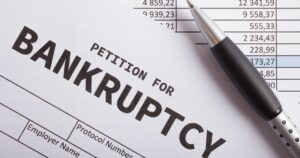Will I have to go to court if I file for Chapter 7 bankruptcy?
If you file for bankruptcy, yes, you will have to show up in court for what is known as the meeting of the creditors.
If you are like most consumers, the idea of showing up in court is daunting. After all, you are probably picturing a traditional courtroom scene with a big room, people staring down at you, and a mean judge sitting up front. In reality, the bankruptcy court is straightforward and rarely intimidating – especially if you have a bankruptcy attorney.
Never let the fear of going to court hold you back from filing for bankruptcy. While it is a legitimate fear, you have nothing to worry about. Your attorney is there to help you file for the financial relief you need, and the purpose of going to court is to finally get out from under your debts. If you keep the end game goal in mind, the idea of appearing in court feels less intimidating.
The Meeting of Creditors – the Time You Must Go to Court
As a debtor, you are required to attend the meeting of creditors, which is officially known as the Section 341 Meeting. At this hearing, you testify under oath that all of the information you provided in your bankruptcy statements is true and accurate.
Not all jurisdictions even use courtrooms for the meeting. Sometimes, they use small meeting halls. Also, you do not have a judge in front of you. Instead, it is the court trustee who presides over the case.
Typically, a 341 meeting is short. Most do not go past 30 minutes. During your 341 meetings, the trustee will ask about your income, financial situations, debts, property, and other assets you own. Your creditors are allowed to be there for this meeting as it is their right to dispute your Chapter 7 request at the hearing.
Sometimes, the trustee will have more questions outside of the basics, but this is only if you have a complicated case. If this is not your first time, the trustee will have more questions.
The most important thing is that you’re honest here in the meeting and with your attorney. When your attorney files the paperwork, the trustee reviews it. And based on your filing documents, they create a list of questions.
Here are a few things you can expect during your 341 meeting:
- Your attorney can come with you. If you hired a bankruptcy attorney (and you should if you’re filing for Chapter 7), your attorney will show up to the meeting with you. That means you have an advocate fielding the questions and making sure nothing inappropriate or outside of the scope is asked of you.
- Your income is verified and assets administered. At this point, any assets you have will be up for discussion. You will hear what assets qualify for an exemption, and then which are being sold to repay debts.
- You must swear in before giving your testimony. You are under oath at these meetings, which means you must swear in and promise to tell the truth.
- You will be asked if all documents and statements are true. Under oath, the trustee will ask that you verify the accuracy and truthfulness of anything you submitted in your bankruptcy paperwork, including income, assets, and debts.
You May Appear in Actual Bankruptcy Court as Well
Outside of the 341 meetings, there are instances where debtors must appear in court. This is incredibly rare, but if your case turns into a matter of litigation, you will find yourself in the courtroom. Sometimes, the trustee will object to findings, exemptions, and propose to the judge that he or she rule on the issue.
Lastly, if you have any adversary proceedings, then you may appear in court, too. For example, the trustee suspects fraud because they noticed that you have moved assets or funds around just before you filed for bankruptcy in order to protect them from litigation.
A creditor might also request that a debt not be discharged. In this case, you will appear in court while the judge hears the creditor’s pleas. Usually, a creditor only requests that a debt not be discharged when they suspect fraud – such as you running up a high credit card bill then filing for bankruptcy 30 days later.
With the Right Attorney, You Have Nothing to Fear
Yes, you will go to court at least once when filing for Chapter 7. So, while the meeting of the creditors is practically guaranteed, you have nothing to worry about. Your attorney is there. They will advise you of your rights and even discuss what you can say to the trustee’s questions.
If, for some reason, you must appear in court for more than the 341 hearing, you will still have your attorney by your side. While instances of fraud accusation or adversary proceedings are rare, you should hire an attorney that has experience handling objections. An attorney that has done cases with objections is prepared to represent you in court and ensure you are not convicted of fraud or that your case is not dismissed for suspected fraud.
If you are thinking of filing for bankruptcy, but you are not sure what your options are, contact our attorneys. Our team understands how intimidating the idea of going to court can be, but we make sure our clients are prepared long before their court date. We want you comfortable at the meeting of creditors, and we are ready to fight for you if any objections or accusations of fraud arise during the process.
To explore your options or to get started on your Chapter 7 proceeding, book an initial consultation with our team. All consultation appointments are kept confidential. And during your appointment, we will go over your bankruptcy options. Contact our office today.

